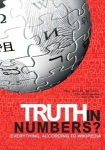
Sometimes when I sit quietly in a computer lab at school and observe my students, I overhear the most wonderful conversations about learning. Today, as I sat in a corner working quietly, several fifth-grade students came in and sat down to work on essays. Focused on work, they took little note of me.
A delightful conversation ensued when one student asked the other student for help with the name of a country. As soon as I realized that an interesting 21st Century learning conversation was happening, I started typing their dialogue rather than my parent letter.
The two children went online together, searched, made all sorts of comments and decisions about what they saw, discovered a few things that they were not looking for, and finally located the information that they needed. But their searching led to additional questions.
The entire conversation lasted less than two minutes, but they learned a great deal.
Student #1: I am trying to write about the country that broke off from India when India became independent. Do you know its name?
Student #2: I’m not sure. I know it’s right next door.
Student #1: Hummm. Maybe it’s Pakistan? But I’m not sure.
Student #2: Maybe. Let’s go online and find a world map.
Student #1: OK. Are you going to Google it?
Student #2: Yes and look. If we go into Images there are lots of maps.
At this point the two students are both looking at dozens of world maps on Google Images and pointing at some of them. They talk about which map to look at. They choose one, but when the enlarge it, it doesn’t work. Continue reading “Now This Is What You Want Connected Kids to Do!”







You must be logged in to post a comment.